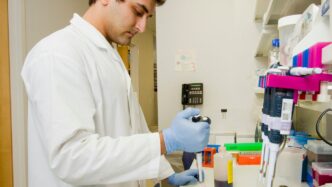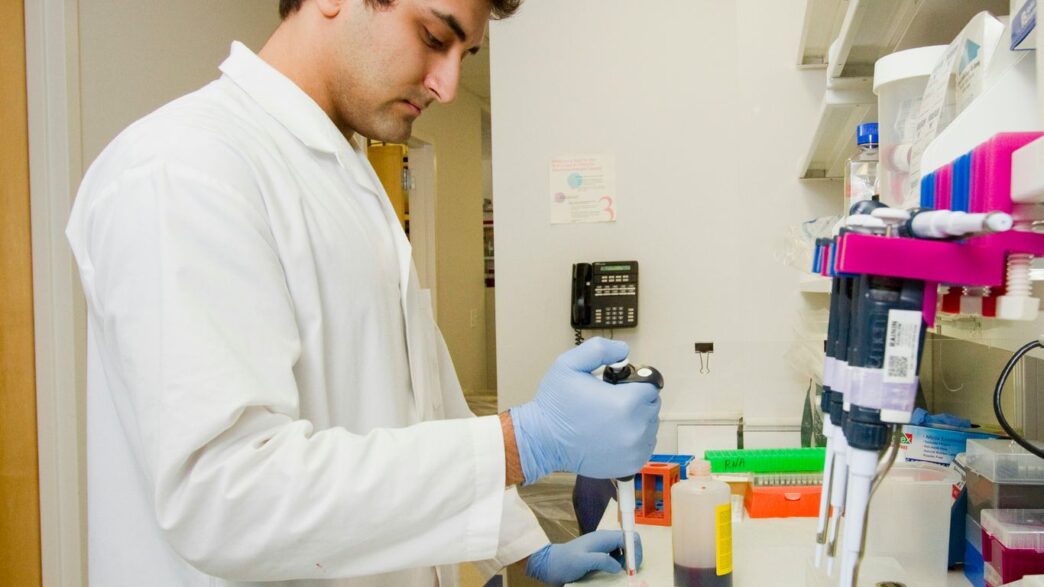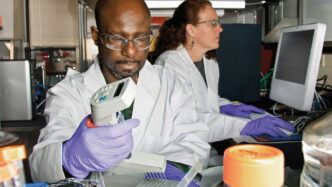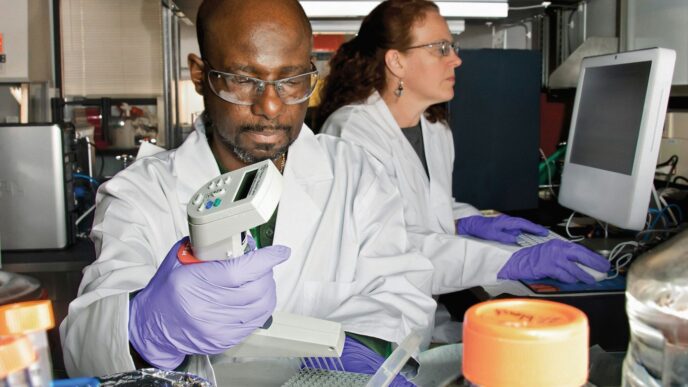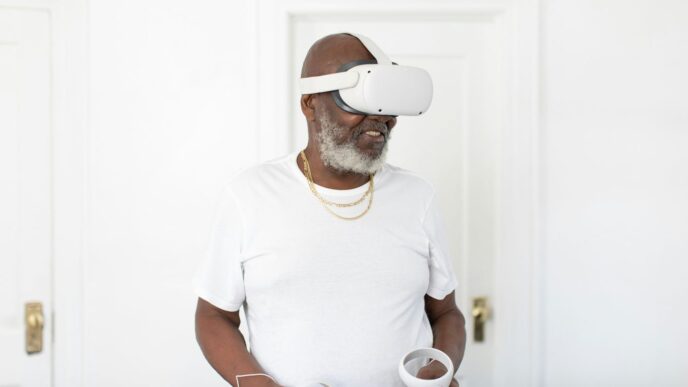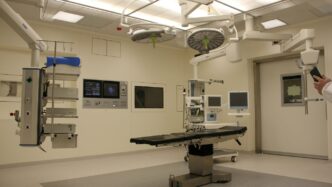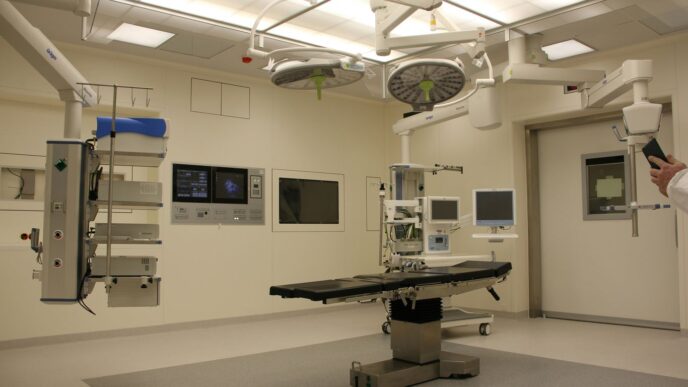Biotech clinical laboratories are really changing how we look at healthcare. It feels like every day there’s something new coming out of these labs that could help people. From figuring out diseases better to creating new ways to fight them, it’s a pretty exciting area. We’re seeing a lot of smart people working hard to make these advances a reality, and it’s definitely worth paying attention to.
Key Takeaways
- Biotech clinical laboratories are at the center of new medical discoveries, using tools like molecular biology and genetics to find answers.
- Big steps have been made in areas like making medicines with recombinant DNA and developing faster vaccines, thanks to biotech.
- Using lots of data and smart tech like AI is becoming a big deal in these labs, but managing all that information is tricky.
- These labs are helping tackle tough health problems like long-term illnesses and aiming to make healthcare better for everyone.
- The future looks bright for biotech products, with ongoing research and development promising even more health improvements globally.
The Evolving Landscape Of Biotech Clinical Laboratories
Biotech clinical labs are really changing how we handle health these days. It’s not just about running tests anymore; it’s about using some pretty advanced science to figure out what’s going on inside us and how to fix it. Think about it – we’ve gone from basic blood work to looking at our actual genes and the tiny molecules that make us tick. This shift is pretty significant.
Leveraging Molecular Biology and Genetics
This is where a lot of the magic happens. We’re talking about tools that let us see DNA, RNA, and proteins in ways we never could before. It’s like getting a super detailed instruction manual for the human body. This allows for:
- Detecting diseases earlier: Spotting genetic markers for conditions like certain cancers or inherited disorders long before symptoms show up.
- Understanding disease causes: Pinpointing the exact genetic or molecular changes that lead to illness, which is a huge step beyond just treating symptoms.
- Developing targeted treatments: Creating therapies that specifically address the root molecular problem, rather than a one-size-fits-all approach.
The ability to analyze our genetic makeup is opening up entirely new avenues for healthcare. It’s complex, sure, but the potential is massive.
Emerging Biotech Paradigms
Beyond just looking at genes, biotech labs are now exploring new ways to approach health. We’re seeing a rise in things like:
- Cell and gene therapies: These are treatments that actually modify cells or genes to fight diseases, like some rare genetic conditions or certain types of cancer. It’s pretty cutting-edge stuff.
- Liquid biopsies: Instead of needing a tissue sample, doctors can now sometimes detect cancer or other diseases by analyzing DNA fragments in a patient’s blood. This is way less invasive.
- Microbiome analysis: We’re learning more and more about how the trillions of bacteria living in our gut affect our health, and labs are starting to offer tests to understand this complex ecosystem.
These new ideas are moving beyond the lab bench and starting to make their way into actual patient care, though it’s not always a smooth road.
Translational Development Challenges
Getting these amazing discoveries from the lab into a treatment that a patient can actually use is, well, tough. It’s a process called translational development, and it’s full of hurdles. Some of the big ones include:
- Cost: Developing and validating new biotech tests and therapies is incredibly expensive. This can make them hard to access for many people.
- Regulation: Getting approval from bodies like the FDA takes a lot of time and rigorous testing to prove safety and effectiveness.
- Complexity: Biological systems are incredibly intricate. Sometimes, what looks promising in a petri dish doesn’t quite work the same way in a living person, or the data we get is hard to interpret.
So, while the science is moving at lightning speed, the practical application and widespread adoption can lag behind. It’s a balancing act between innovation and making sure new treatments are safe, effective, and accessible.
Transformative Innovations Driven By Biotech Clinical Laboratories
Biotech clinical labs are really changing the game in healthcare. Think about it – we’re talking about stuff that used to be science fiction not too long ago. One of the biggest leaps forward came with recombinant DNA technology. This was a huge deal back in the 1980s. It allowed scientists to actually snip and move genes around, which meant they could get organisms, like bacteria, to produce important proteins. The first big win was making insulin this way. Before that, getting insulin was a whole different, often difficult, process. Now, with biotech, we have a much more reliable and safer supply for people who need it.
Then there’s vaccine development. We saw this firsthand with the COVID-19 pandemic. Companies like Pfizer and Moderna used mRNA technology, which was a totally new way to make vaccines. It was so much faster than older methods. These vaccines showed how quickly biotech can respond to a global health crisis. Plus, the fact that they can be tweaked to deal with new virus strains is pretty impressive. It shows how adaptable this technology is.
And we can’t forget about personalized medicine, especially with all the ‘omics’ stuff like genomics and proteomics. This is where we look at a person’s unique genetic makeup and other biological information to tailor treatments. It’s a big shift from the one-size-fits-all approach. Instead of just treating symptoms, we can start to target the root causes based on an individual’s biology. It’s still developing, and there are challenges, but the potential to improve how we treat diseases is massive.
Here are some key areas where biotech labs are making a difference:
- Recombinant DNA Technology: Led to the production of therapeutic proteins like insulin and growth hormones.
- Vaccine Development: Enabled rapid creation of vaccines, as seen with mRNA technology for COVID-19.
- Personalized Medicine: Using ‘omics’ data to create treatments specific to an individual’s genetic profile.
- Diagnostic Tools: Developing more sensitive and specific tests for early disease detection.
Harnessing Data And Technology In Biotech Clinical Laboratories
Okay, so we’ve talked about how biotech labs are changing things, but how are they actually doing it? A lot of it comes down to getting smarter with data and using new tech. It’s like having a super-powered magnifying glass and a really fast calculator all rolled into one.
The Role Of Big Data And AI
Think about all the information generated from genetic sequencing, patient records, and research studies. It’s a mountain of data, and frankly, it’s too much for any one person to sort through. That’s where big data comes in. It’s all about collecting, organizing, and making sense of these massive datasets. Then, artificial intelligence (AI) and machine learning (ML) step in. These tools can spot patterns that we humans would totally miss. They can help predict how a disease might progress or even suggest which treatments might work best for a specific person. This ability to sift through complexity and find hidden connections is what’s driving a lot of the progress we’re seeing. It’s not just about having the data; it’s about having the smart tools to actually use it.
Challenges In Data Management And Analysis
Now, it’s not all smooth sailing. Dealing with all this data brings its own set of headaches. For starters, getting the data in the first place can be tricky. We need to collect it accurately, store it safely, and then share it when needed, all while keeping patient privacy in mind. Then there’s the analysis part. Different labs might use different methods, which can make comparing results tough. It’s like trying to compare apples and oranges sometimes. Plus, the technology itself is changing so fast. What’s cutting-edge today might be old news next year, meaning labs have to constantly update their systems and train their staff. It can get pretty chaotic trying to keep up.
Ensuring Data Reliability And Reproducibility
This is a big one. If the data isn’t reliable, then any conclusions we draw from it are pretty much useless. We need to be sure that the results we get are accurate and that if someone else runs the same test, they get the same result. This is called reproducibility. It’s super important for building trust in the findings. Think about it: if a lab test gives you one result today and a completely different one tomorrow for the same condition, how are doctors supposed to make treatment decisions? So, biotech labs are working hard on setting up clear standards and quality checks. This includes things like:
- Standardizing testing procedures across different labs.
- Implementing strict quality control measures for all equipment and reagents.
- Developing better ways to track and document the entire data lifecycle, from collection to analysis.
- Regularly validating analytical methods to confirm their accuracy and consistency.
Addressing Healthcare Challenges With Biotech Clinical Laboratories
Combating Noncommunicable Diseases
Biotech clinical labs are really stepping up when it comes to tackling noncommunicable diseases, or NCDs. These are the big ones like heart disease, diabetes, and cancer, which are becoming a huge problem globally. For a long time, we relied mostly on drugs, but that hasn’t been enough for these complex conditions. Now, with tools like advanced genetic testing and molecular diagnostics, labs can spot NCDs earlier and more accurately. This means doctors can start treatment sooner, which often makes a big difference in how well patients do. It’s not just about finding the disease, though. Biotech is also helping us understand why these diseases happen in the first place, looking at things like genetic predispositions and environmental factors. This deeper knowledge is key to developing better ways to prevent and manage NCDs.
Improving Patient Outcomes
Ultimately, what biotech clinical labs are doing is all about making patients healthier and their lives better. Think about personalized medicine. Instead of a one-size-fits-all approach, labs can now analyze a patient’s unique genetic makeup and other biological markers. This information helps doctors choose the most effective treatments and avoid ones that might not work or could cause bad side effects. For example, in cancer treatment, knowing the specific genetic mutations in a tumor can guide the selection of targeted therapies, leading to better results and fewer harsh side effects compared to traditional chemotherapy. It’s a more precise way to treat illness, and it’s changing how we think about patient care.
Bridging Healthcare Disparities
One of the really exciting parts of biotech is its potential to help people who haven’t always had access to the best healthcare. Historically, advanced diagnostics and treatments have been expensive and concentrated in certain areas. However, biotech is starting to change that. The development of more affordable and accessible diagnostic tests, for instance, means that people in rural or underserved communities can get tested for diseases without having to travel long distances. Furthermore, research into diseases that disproportionately affect certain populations can lead to treatments tailored to their specific needs. The goal is to make sure that everyone, regardless of where they live or their background, has a chance to benefit from these medical advancements.
The Future Of Biotech Clinical Laboratories
So, what’s next for biotech clinical labs? It’s a pretty exciting time, honestly. We’re seeing more and more of these amazing discoveries move from the research bench right into actual products that can help people. Think about it – things that used to be science fiction are becoming real treatments and diagnostic tools.
Commercialization Of Biotech Products
This is a big one. For years, we’ve had brilliant ideas brewing in labs, but getting them out to the public has been a hurdle. Now, there’s a real push to make these biotech innovations available. It’s not just about making new drugs; it’s about creating better ways to test for diseases, develop personalized treatments, and even prevent illnesses before they start. We’re talking about things like advanced gene therapies and novel diagnostic platforms that can spot problems much earlier than before. It’s a complex process, involving lots of different players – researchers, doctors, and companies – all working together to bring these ideas to life.
Investing In Research And Development
To keep this momentum going, we absolutely need continued investment. It’s not cheap to develop new biotech tools and therapies. We’re talking about years of testing, refining, and making sure everything is safe and effective. This means funding needs to flow into both basic research – the kind that explores new scientific territory – and the applied research that focuses on turning those discoveries into usable products. Without that steady stream of money, a lot of promising ideas might just stay stuck in the lab.
Here’s a look at where some of that investment might go:
- New Diagnostic Tools: Developing faster, more accurate tests for a wider range of diseases.
- Therapeutic Development: Creating innovative treatments, including gene and cell therapies.
- Data Infrastructure: Building better systems to manage and analyze the massive amounts of biological data being generated.
- Manufacturing Capabilities: Scaling up production for new biotech products to meet demand.
A Healthier Global Future
Ultimately, all of this work is aimed at one thing: a healthier world. Biotech clinical labs are at the heart of this. They’re not just about running tests; they’re about finding solutions to some of the biggest health problems we face, from chronic diseases to rare genetic conditions. As these technologies mature and become more accessible, we can expect to see significant improvements in how we prevent, diagnose, and treat illnesses across the globe. It’s a long road, for sure, but the progress we’re seeing is really encouraging.
Looking Ahead
So, we’ve seen how biotech clinical labs are really changing the game in healthcare. From figuring out diseases faster to creating new ways to treat them, these labs are at the heart of it all. It’s not always a straight path, and there are definitely hurdles to jump, like making sure new tech works reliably and doesn’t cost a fortune. But the progress is undeniable. Think about how quickly we got those COVID vaccines – that’s biotech in action. As we keep learning more about our bodies and how to fix them, these labs will only become more important. It’s exciting to think about what’s next, and how biotech will continue to help people live healthier lives.
Frequently Asked Questions
What exactly are biotech clinical labs and why are they important for health?
Think of biotech clinical labs as special science centers that use cutting-edge tools to understand diseases better. They help doctors figure out what’s wrong with someone and find the best ways to treat them, often using new medicines or therapies developed through biology and genetics. They’re like the detectives of the healthcare world, solving health mysteries.
How has biotech changed medicine over time?
Biotech has totally changed how we treat sickness! Remember when doctors had to rely on just a few treatments? Now, thanks to biotech, we have things like super-specific medicines made from living cells, like insulin for diabetes, and even new ways to make vaccines much faster, like we saw recently. It’s like going from basic tools to a whole toolbox of amazing inventions.
What is ‘personalized medicine’ and how do biotech labs help with it?
Personalized medicine means treating you based on your unique body, not just a general illness. Biotech labs help by studying your genes and other biological information (called ‘omics’). This helps doctors pick the exact treatment that will work best for *you*, making it more effective and having fewer side effects. It’s like getting a custom-made suit instead of one off the rack.
Why is managing and using all the health data from biotech so tricky?
Biotech labs create tons of information, like a giant puzzle with billions of pieces! It’s hard to store it all, make sure it’s correct, and then figure out what it all means. Plus, keeping this sensitive information safe is super important. It’s like trying to organize a massive library where all the books are constantly being updated.
Can biotech labs help with long-term health problems like heart disease or diabetes?
Absolutely! These common, long-lasting health issues, called noncommunicable diseases, are complex. Biotech labs are working hard to find new ways to spot these problems early, develop better treatments, and even prevent them. They’re using advanced tech to understand these diseases better so we can live healthier lives for longer.
What’s next for biotech clinical labs and our health?
The future is bright! Biotech labs are helping turn amazing scientific ideas into real treatments and products that can help people everywhere. By continuing to invest in research and working together, these labs will play a huge part in making the world a healthier place for everyone, tackling diseases we once thought were unbeatable.

